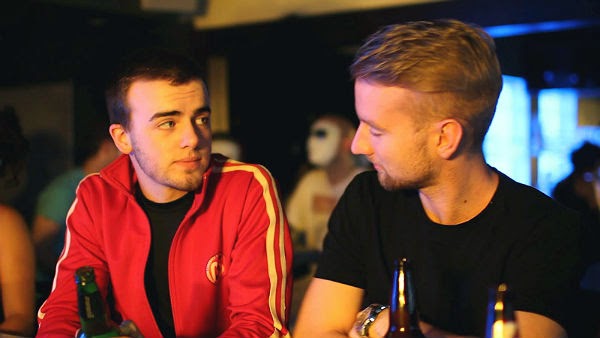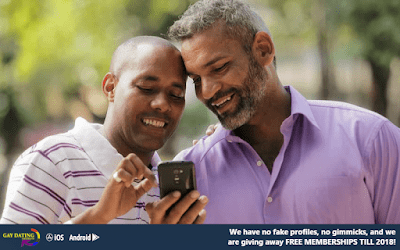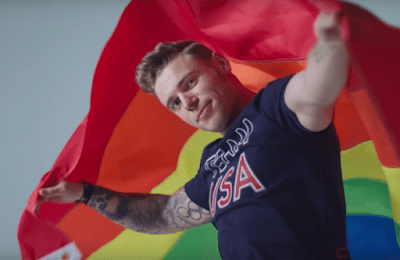How Boston has been celebrating LGBT pride for 45 years
Written by Joseph • June 13, 2015
The first Boston gay pride parade was in 1971. Forty-five years and hundreds of thousands of people later, the celebration still takes over the city every June. Dick Bourbeau in his South End home. Courtesy “Someone said they’d take me to a gay bar, and I said, ‘Gay bar, what’s that?’” said Dick Bourbeau, recounting […]
The first Boston gay pride parade was in 1971. Forty-five years and hundreds of thousands of people later, the celebration still takes over the city every June.
 Dick Bourbeau in his South End home.
Dick Bourbeau in his South End home.
Courtesy
“Someone said they’d take me to a gay bar, and I said, ‘Gay bar, what’s that?’” said Dick Bourbeau, recounting his first year in Boston. “They explained it’s a bar where all the customers are gay and I said ‘You’ve got to be kidding me.’”
It was 1970. Bourbeau had just gotten out from a four-year tour with the U.S. Army Security Agency. He went to that bar, and soon became involved in the city’s gay scene. In 1973, he marched in Boston’s third Pride Parade. He hasn’t missed one since.
Bourbeau’s first parade was the first to turn down Charles Street, and he clearly remembers seeing people hanging out their windows and leaning over their roof decks cheering. He didn’t know Beacon Hill was so gay-friendly then.
“It was wild,” Bourbeau said. “I’ve never seen anything like that.”
That support was a far cry from his Army days, where he had to hide his sexuality for fear of receiving a dishonorable discharge.
“That would ruin your life,” he said.
“They explained it’s a bar where all the customers are gay and I said ‘You’ve got to be kidding me.’”
He would wake up hours before his fellow soldiers to shower alone as a way to avoid any embarrassment in the group showers. After the Army, Bourbeau knew he didn’t want to go back to Connecticut; his dad was strongly homophobic. Boston became a safe haven, but even here, in later years, Bourbeau said he had to worry about under cover policemen who would try to entrap gay men in the Boston Public Library bathrooms.
Forty-five years later, he considers Boston his “little niche” and is still showing his pride. This year marks the 45th anniversary of the Boston Pride Parade, and Bourbeau will be there representing the Boston Prime Timers, a “brotherhood of mature gay men,” for which he is an honorary board member and club historian.
“It’s something I look forward to because it’s a very visual bringing together of the community,” Bourbeau said.
“People generally think that we’re about 10 percent of the population—the gay community—but I happen to believe we’re bigger than that.”
Bourbeau admitted that you can’t tell the LGBT population based on parade attendance—many people in the crowd might just be allies—but the parade itself proves that the community demands to be seen.
About 300 people attended the first march in 1971, according to Libby Bouvier, an archiver and board member for the Boston-based LGBT History Project. This year’s Pride Guide, a magazine published by Boston Pride, estimated the 2014 parade as having 25,000 marchers, 150,000 guests, and 400,000 spectators.
The ‘71 event was explicitly political: marchers singled out four locations around the city as platforms to read off their demands. Starting at Jacque’s, a legendary drag bar in the Bay Village, the community raised concerns over the club’s issues with misogyny and treatment toward lesbian patrons.
At Berkeley and Stanhope streets, where Boston police headquarters was previously located, marchers demanded the police provide protection, rather than harassment, in areas surrounding gay bars.
The State House was next, and marchers called for the repeal of laws against sodomy and to enact laws to end discrimination. Last was St. Paul’s Cathedral, which served as a symbol at which to denounce the religious persecution of homosexuals.
Those first few hundred marchers “were people who felt comfortable or able or willing to participate in a public event such as the pride rally,” Bouvier said. “To carry signs and to be with their people who may have been ‘more out.’”
“We always try to capture that Pride is a celebration, but it’s also a concentration of rights.”
Now, Pride is a week of festivities that ends in a huge parade full of floats, vivid costumes, and seemingly endless entertainment. City Councillor Ayanna Pressley tweeted that this year’s pride is “history in the making:” 230 groups are present for 50 events over 10 days.
“It’s interesting because we always try to capture that Pride is a celebration, but it’s also a concentration of rights,” said Sylvain Bruni, president of Boston Pride. “It’s a celebration of who we are out there but also being wicked proud at being physical–still marching, still political, still showing elected officials and decision makers that we’re here and asking for full equality.”
Pride is universal, but this year’s “Wicked Proud” parade theme is inherently Boston. Bruni’s first Pride was in 2004, when the parade coincided with the Commonwealth legalizing same-sex marriage. He came from France to study at MIT, and now, serving as Pride’s president since 2013, he’s become closely tied to both the city and the celebration.
“During the parade, between all of the chaos that’s happening in the background, I always try to take five minutes and watch the crowd,” Bruni said. “To me, that moment is very powerful and emotional.”
Bruni knows the first Pride parade someone attends can change their life. It did for him. Even after 45 years of parades, he said “it’s always someone’s first Pride.”
Original post from Boston.com:
Have you found the right one, or are you still searching?

Join a gay dating site where you can meet single guys from any town or city. Rely instead on Gay Dating Solutions to do the work for you!
Don’t get fooled by FREE offers made by other sites. Gay Dating Solutions is offering a free 6 month promotion ABSOLUTELY no strings, request for credit card numbers, etc…it is the only site that is truly free to join!
Sign-up now: www.gaydatingsolutions.com
Like us on Facebook: www.facebook.com/GayDating101
Tweet us: twitter.com/GayDating101



